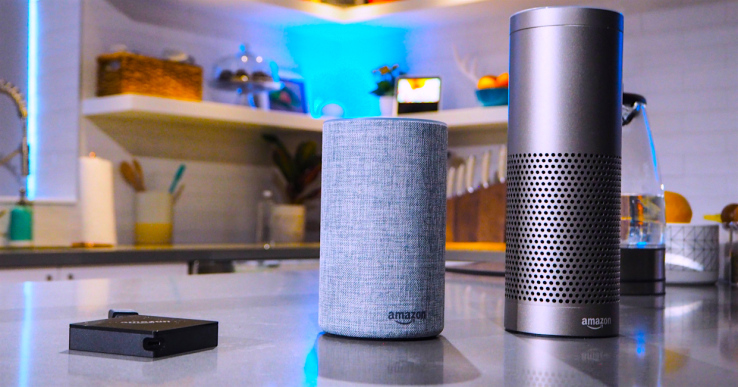

Alexa is starting to think for herself. The personal assistant that’s built into Amazon devices like Echo smart speakers and Fire TV may better distinguish itself from competitors like Google Assistant in the future by offering up not just facts or recommendations, but by having her own opinions on things that weren’t explicitly added to her programming.
This will come into play, in particular, in the living room and in home entertainment scenarios, where Alexa will start to offer consumers more than just information on what’s popular on TV tonight, for example, or what she thinks you might like to watch. She will also be able to offer what she personally recommends.
The idea is that speaking to an assistant shouldn’t be about performing fact-based queries via voice, but having a conversation, explained Amazon Fire TV VP Marc Whitten, in a conversation at CES. That means Alexa will have to feel less like a voice search engine and more like someone you can really talk to.
“Having an opinion makes you more interesting, even as an assistant,” he said.
The Fire TV team has already seen the differences in how consumers act when talking into a voice remote by pressing a button, and talking to Alexa hands-free. In the former case, it’s like people are dictating queries into a search box. But when speaking hands-free, they start to ask more nuanced questions, like “show me comedies between ’88 and ’92,” Whitten noted.
This naturally leads people to ask a wider variety of questions, like what’s interesting tonight? or what should I watch?, which Alexa could respond to using data on TV shows’ popularity, or things she already knows about your preferences and viewing behavior in order to make personal recommendations.
But Alexa’s opinions would be neither of those things. They would be her own.
“This is the 2018 version of the video buff at the video rental store,” said Whitten. It’s like when you ask a friend what’s good to watch, and they offer a suggestion that’s not necessarily one of the top-rated shows – just something they are enjoying.
“This is the power of machine learning. One of the most interesting things we’re going at is how do you design an assistant that feels like you’re having a conversation with someone,” Whitten said.
Machine learning and deep learning networks are a key part of how Alexa will eventually offer more than just the fact graph – one of Google’s key strengths today. A separate team at Amazon has been rapidly improving Alexa’s ability to answer questions by adding more fact-based information to Alexa’s knowledge base, while also observing where holes still exist by analyzing users’ queries that the assistant can’t answer.
But while facts are important, what makes an assistant feel fun and friendly are its quirks, jokes, and other tricks that give it a personality.
For example, Alexa will belt out a cheesy country ballad if you ask her to sing for you, or she’ll tell you that she thinks “infrared is really pretty” if you ask about her favorite color.
Today, however, these sorts of things are more explicitly built into Alexa’s programming. The longer-term goal is that Alexa would come up with more answers on her own starting with her own set of opinions that aren’t curated by an editorial team inside Amazon.
“At the scale we’re talking – Alexa is now launched in seven countries – you can’t editorialize opinion on everything. That doesn’t work,” said Whitten. “The ambitious goal is that you don’t have to do [human curation].”
Alexa’s ability to tell you about the TV shows she likes to watch may be here sooner than you think. The assistant is already starting to think for herself in other areas, as it turns out.
“Alexa has her own opinions today that were not curated by humans,” Whitten pointed out.
Such as?, we asked.
“Alexa, what’s your favorite beer?,” he suggested.
Sure, enough, Alexa has a response for this: it’s “definitely Budweiser.”
But that answer begs the question – even if Alexa has her own opinions, can they be trusted to be any good?

